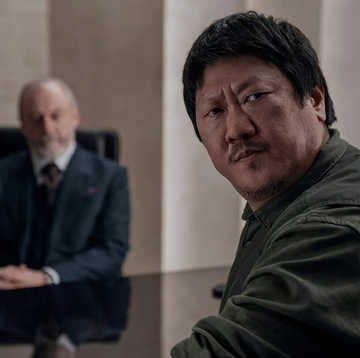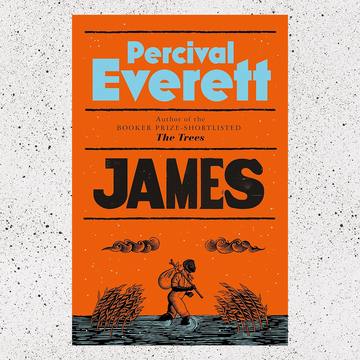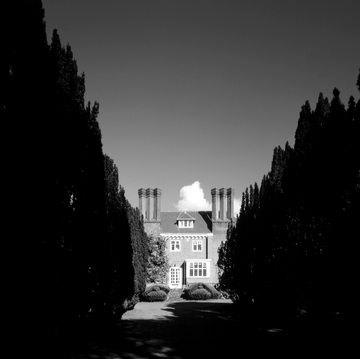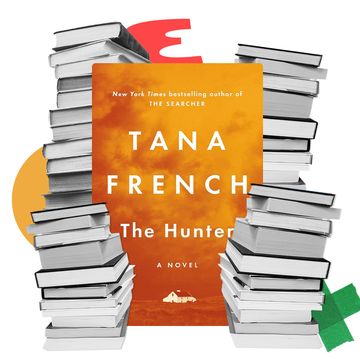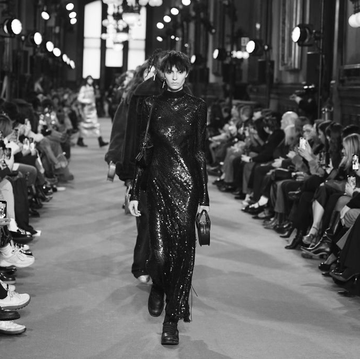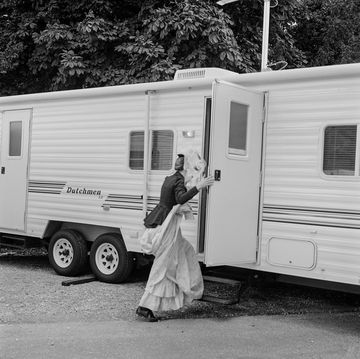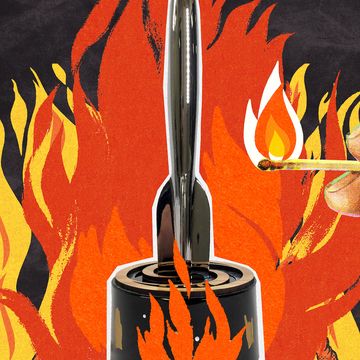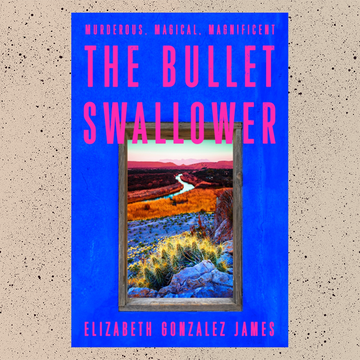Irvine Welsh is offering me a sausage. It’s one of those proper pub ones: greasy and dripping in mustard.
"You’re gonna have to help me out with this," he says, looking down doubtfully at a mounting pile of hot snacks.
"I’ve ordered way too much here… This is gonna kill me."
How would the Trainspotting boys react to such an offer, I wonder? Renton would just nod and tuck in. Sickboy would have already helped himself. Spud would probably look at him, eyes brimming with gratitude, then sneak a few extra in his pockets for later. And Begbie? Begbie’s a little harder to get a read on these days.
“He’s worked out how to play the system,” Welsh says of his creation – the most eye-wateringly authentic pub psychopath ever committed to fiction – “but he’s still a horrible bastard. He’s just pretending.”
A quick recap for those whose knowledge of the Leith lads start and end with Welsh’s debut novel, or Danny Boyle’s equally era-defining film adaptation: they’ve gotten old. But while Renton, Simon and Danny have remained more or less the same – still scheming and scrounging their way through life, still best of mates and worst of enemies – Begbie has, in solo outing The Blade Artist (2016), been reformed as a LA-dwelling painter, albeit one still capable of a little ultra violence on the sly.
Dead Men’s Trousers, Welsh’s new novel, is the sequel to the sequel to Trainspotting (accounting for 2002’s brilliant Porno, the semi-inspiration for Boyle's T2 ) and finds the four reunited deep in middle age. It’s Welsh’s best book for years - the third in a great run that started with A Decent Ride in 2015 which are all set, at least partially, back in Edinburgh.
When he starts a story, I ask, is he automatically transported back to Leith, even though real life has carried him so far away, most recently to Miami?
“I’ve moved around a lot,” he says. “Most of my life I’ve been moving around, and I think you pick up stuff from wherever you go. But I still feel like it’s your childhood and teens that make you and shape you as a writer, because that’s where all your attitudes and views come from.
“So yeah: the inspiration still comes from Edinburgh, and to a lesser extent London. But I think it’s more from a time in life – when you’re aged between 12 and 22. That 10 year gap.”
There’s a great passage in Dead Men’s Trousers where the four temporarily put aside their bitterness and resentments to celebrate Hibernian FC's unlikely Scottish Cup victory of 2015 – “the only thing that could bond them back together” Welsh says, chewing a chicken satay. For just a night, Renton and the others are transported back to an earlier time: somewhere in that ten-year gap, when they were still in love with football and still excited by the possibilities of their own lives. For fans of his work, it's worth buying a copy for this alone.
But both in and outside the book, the world has changed - and so have men. Or at least: we’re being asked to. Welsh is, for my money, the most astute and honest observer of masculinity in modern British fiction, so I’m curious to know what he is making of MeToo and the idea of ‘toxic masculinity’ – a concept Begbie encapsulated before the term was even invented.
"There’s a change going on with men and women,” he agrees.
“Part of the reason is that capitalist society and old notions of labour are breaking down, so we don’t have those specific gender roles anymore.
“And there’s an excitement about rejecting it all, because the patriarchy’s been fucking shit for men, too – they’ve been fucking blown to bits and shot at and they’ve worked in factories and mills and building sites and died young.
“But we still don’t quite know what to replace it with. The old structures did give people a sense of belonging, and now it’s starting to unravel, people are thinking: ‘what do we do? How should we be?’ I think there’s a lot of internal resistance about it, and I think it’s something that affects women as much as men.”
He cites the fact that so many women voted for Trump in the last US election.
“But hopefully,” he adds, “we’ll get to that point where we become human beings first and men and women or whatever second. That’s the kind of evolution you really want to see.”
Unpacking misogyny – both its roots and consequences - has always been one of biggest themes of Welsh's writing. I wonder if Trainspotting – which was met with controversy when it was published in 1993, but only really because of its depiction of drug use – would be received in quite the same way today.
"I don’t think [Trainspotting] would get published by a mainstream publisher now," he says. “I think I would probably have to self-publish first.
“But you can still go to bars where people have those attitudes and grew up that way. I think media people and middle class people have a real problem with the expression of working class anger, and that’s quite difficult for people to handle. It’s always been there and it’s always been a difficulty a lot of people have had with the stuff that I do, but I think it is becoming a lot more acute.”
Welsh is in the middle of a promotional tour right now: a whirlwind of reading commitments, interviews and nights out catching up with old friends in cities across South America and Europe – including Italy, where he is almost as popular as he in the UK.
I ask him about the strangest fan experiences he’s ever had.
“I’ve had stalkers and all sorts,” he says, almost three quarters of the way through the grub now.
“The worst thing you can do is stalk a writer – it’s so fucking boring. All we do is sit indoors and go out for a pint of milk every couple of days. On the weekends we might have a bit of a tear, but it’s such a strange thing to do.
“I’ve also had a few people try to give me something. I don’t mind when it’s drugs or something like that, but one time this lassie gave me this big thing she’d done where she’d drawn all the book covers and then written a poem about each of them. I said: ‘this is going above my fire in the front room,’ but it's difficult to take stuff like that back.”
When he’s not working or meeting fans, Welsh is often – like most writers today - to be found on Twitter.
“I like having fun on there and winding people up,” he says, grinning.
“It has become a distraction. And the bigger a following you get, the more of a distraction it becomes. But you don’t want to become this total cunt who only bangs on about his new books and stuff like that. You want to have some kind of engagement with people.”
He has plenty of reasons to log off. There’s a TV adaptation of 2008’s Crime on its way, and a couple of novels – one of which he says is set in Vegas in the aftermath of the 2017 Harvest festival shooting, the second probably in London.
The snacks are almost cleared now, and it’s time to leave.
You’re not supposed to say this as an interviewer, but it’s great fun sitting in a pub with Welsh. I think of the many times throughout my teens and twenties I’ve been in the same setting discussing his books with friends – my own bunch bound by history, prone to being a bit too much of a cunt to each other, men just trying to figure it all out.
And so I ask the question Welsh has had a lot recently. Will there be another Trainspotting book?
He looks dubious.
“I don’t know, I can’t really see it just now. I want to take a break from them for a while.”
But then there’s a small smile: one that makes you think he probably won’t be able to resist revisiting that ten-year gap forever.
Dead Men's Trousers is out now.





